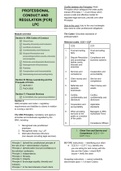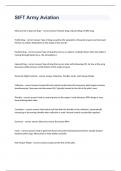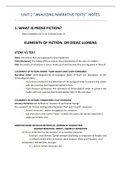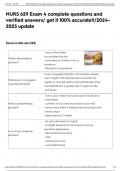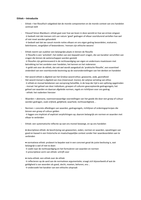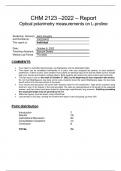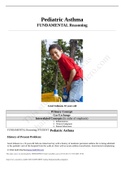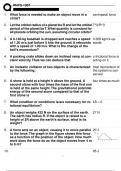Conflict between the Principles: those
Principles which safeguard the wider public
PROFESSIONAL interest (Principles 1 + 2) and those which
CONDUCT AND ensure a safe and effective market for
regulated legal services, prevails over other
REGULATION [PCR] Principles
LPC Duty to the court: duty to the court outweighs
duty owed to other professional obligations
Module overview The Codes- Describes standards of
professionalism
Section A: SRA Codes of Conduct
Client Care
Relevant codes: CCS + CCF
Equality, Diversity and Inclusion
CCS CCF
Conflicts of Interest
Confidentiality and Disclosure 1 Trust and acting Trust and acting
Dispute Resolution and fairly fairly
proceedings before courts, tribunals
2 Dispute Resolution Compliance and
and enquiries
and proceedings business systems
Referrals and Separate Businesses before courts,
Management of businesses tribunals and
enquiries
Publicity
Cooperation and Accountability 3 Services and Cooperation and
Maintaining trust and acting fairly competence accountability
Section B: Money Laundering and the 4 Client money and Service and
assets competence
Proceeds of Crime
MLR 2017 5 Referrals and Client money and
PoCA 2002 separate assets
businesses
Section C: Financial Services
6 Conflict, Conflict,
S.19 FSMA, the ‘general prohibition’ confidentiality and confidentiality and
disclosure disclosure
Section A
SRA principles and codes + regulatory 7 Cooperation and Applicable
requirements and liabilities to clients in relation accountability standards
to running a law firm
8 When providing Managers in SRA
The SRA Principles- mandatory and apply to services to the Authorised Firms
public or a section
all bodies and individuals regulated by the
of the public
SRA, including:
9 - Compliance Officers
1. Recognised sole practitioner/
employee,
2. Recognised body .e.g. LLP, 1. Client Care and Service and
3. Alternative Business Structure Competence: CCS 3 + 8 +
(non-lawyers providing legal services). CCF 7.1(c)
Principle 1. Uphold the constitutional principle of BEFORE instructions → identifying your client
the rule of law + administration of justice, ● CCS 8.1 + CCF 7.1(c), identify who
Principle 2. Uphold public trust and confidence in you are acting for and compy with the
the solicitors’ profession, law and the Codes + check MLR
Principle 3. Independence, issues = Verify the client
Principle 4. Honesty,
Principle 5. Integrity, Accepting instructions → cannot unlawfully
Principle 6. Encourage equality, diversity and discriminate (para 1.1 of each Codes)
inclusion,
Principle 7. In the best interests of each client.
, BUT cannot involve breach of the law or a
2. Conflicts of interests, the Codes 6.1 and
breach of CCS + CCF .e.g. Conflict of interests
6.2:
or suspect MLR
Right to make a complaint CCS 8 + CCF a) Own interest conflict Code 6.1,
7.1(c) b) Conflict of interest Code 6.2,
i) 6.2(a) SCI,
Service and competence → ii) 6.2(b) same objective.
1. CCS 3.1 and CCF 4.1, you only act for
the client on instructions from the ● The ‘general rule’- conflict arises when
client, your ability to act in the best interests
2. CCS 3.2 and CCF 4.2, ensure of all your clients is compromised, or a
services provided is competent and risk arises
delivered in a timely manner,
3. CCS 3.3, keep professional Exceptions to a conflict of interest →
knowledge and skills up to date, a. 6.2(a) clients have a sub common
4. CCF 4.3 effective system to supervise, interest,
5. CCS 3.4 and CCF 4.2, consider your b. 6.2(b) clients are competing for the
client’s attributes, needs and same objective.
attributes, Step 1: consider whether there is a conflict
6. CCS 3.5, accountability,
7. CCS 3.6, competency. a) What are your separate duties to act in the
best interests of each client,
Client information and publicity → b) Is there a conflict [do you have to
1. CCS 8.6, information to clients in a compromise one client’s interests to
way they understand, another client’s interests?]
2. CCS 8.10, what services will be c) Significant risk of such a conflict in relation
provided, and regulated, to the matter or aspect of it.
3. CCS 8.11, clients understand the Step 2:
regulatory protections available to
them. Do either the exceptions in 6.2(a) or (b) apply on
the relevant fact pattern?
Costs standards →
1. CCS 8.7, pricings and appropriate (the exceptions do not apply to an own interest
costs, conflict)
2. CCS 8.8, publicity is not misleading,
charges, a) 6.2(a) SCI = ‘clear common purpose’ and
3. CCS 8.3, writing at the time of ‘strong consensus’ on how to achieve the
engagement + right to complain, charges purpose
and how to make the complaint.
Client money and assets → Informed consent, given or in writing,
1. CCS 4.1 and CCF 5.1, account for Effective safeguards to protect confidential
financial benefits, information,
2. CCS 4.2 and CCF 5.2, safeguard Reasonable to act
money and assets entrusted to you by
clients and others, Clear common purpose, a buyer and a seller may
3. CCS 4.3, do not personally hold client have a clear common purpose BUT needs to also
money unless permitted. mean little to no negotiation (strong consensus)
.e.g. SCI = purchase or setting up of a business as
Complaints, regulation: standards → partners, or taking out a lease, as joint tenants
1. CCS 8.2, the procedure for handling
complaints, b) 6.2(b) CCSO (not to buyer/seller!) =
2. CCS 8.3, right to complain, objective includes; assets, contracts,
3. CCS 8.4, the further procedure for business opportunity, creditors, bidders and
making a complaint, tenderers
4. CCS 8.5, complaints properly, fairly
and free of charge. Informed consent, given or in writing,
Effective safeguards to protect confidential
information,
Reasonable to act

